MECHISTA MAGAZINE
PRESENTED BY THE HTH MECHA / LATINX STUDENT
UNION
HIGH TECH HIGH 2023
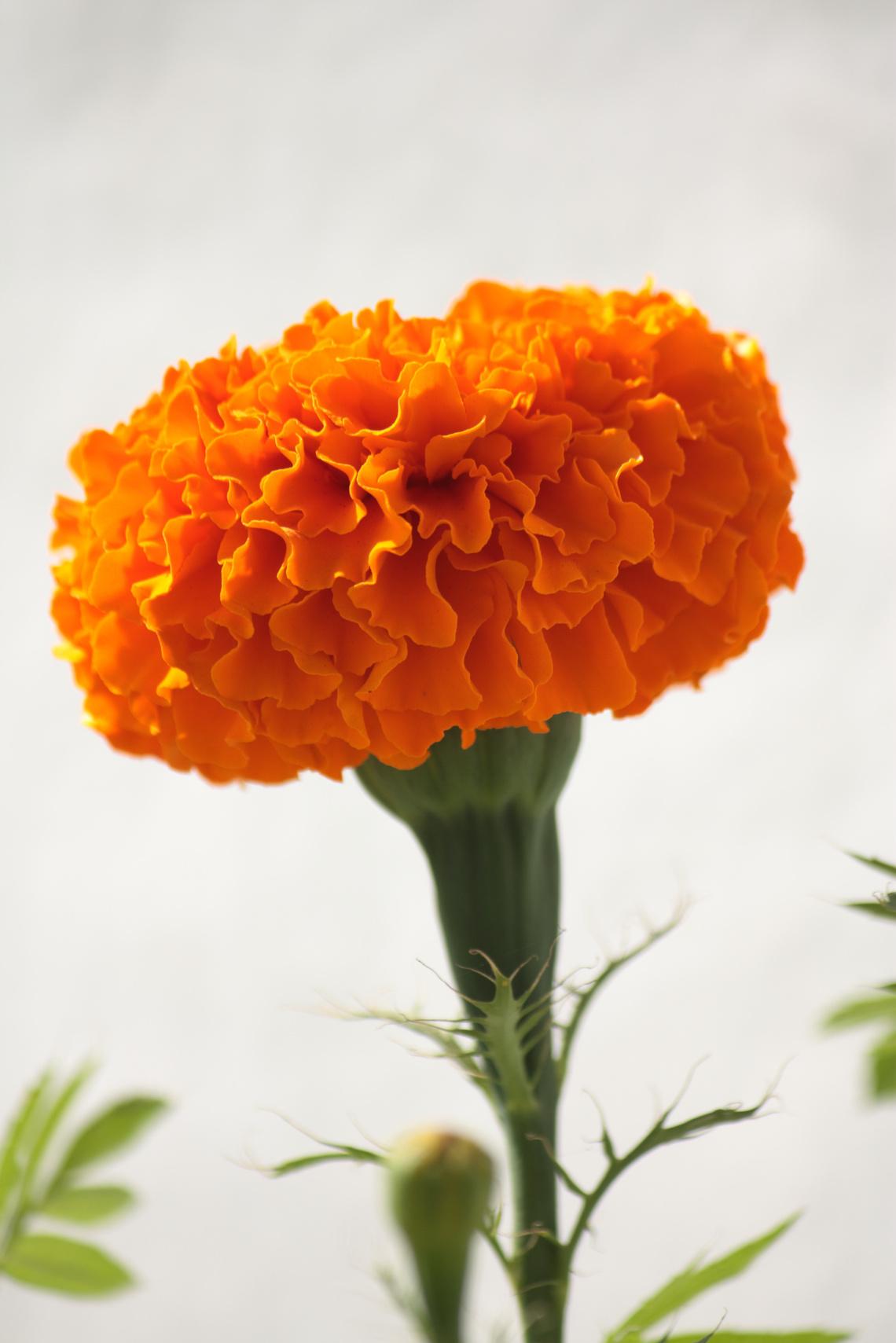
Mechista Magazine 2nd Edition 2023
Cover Image Pixabay
Editorial
Lucía Chavarín López Editor
Contributors
Fahima Ahmed, Judy Zapien, Lucera Gallegos, Zam zam Abdul, Julia Melchor & Michael Chin
Advertising Stephanie Antin santin@hightechhigh.org
Write to: 2861 WOmble Road, San Diego, 92106
MECHISTA MAGAZINE M A G A Z I N E I S B R O U G H T T O Y O U B Y H T H M E C H A
Published Annually by High Tech High MEChA. All Rights Reserved.





PART 1 TABLE OF CONTENTS Editor's Note 04 MEChistA Magazine Team 05 HTH MEChA Officers 06 What is MEChA? 10 HTH MEChA Alumni 13 Student Highlights 23 Summer Programs for BIPOC Students 31 PART 2 Plans for HTH Seniors 35 What Does it Mean? 37 Being Brown In A White State 40 Mixed Identities 43 Hoop History 50 Dear Hoops 52 Mechista Magazine, 3 Joe Ortega; Community Member 55
I want to first say thank you to everyone who helped me create this magazine. Thank you to everyone I interviewed. Thank you to my team who helped transcribing interviews and organizing quality pages. Thank you to Michael Chin who helped me fundraise materials to create the physical copies. Most of all, thank you to you, the reader for taking the time to appreciate my passion project
Lucía C. López
Editor-in-Chief
Editor’s Note
MECHISTA MAGAZINE
In this
issue
we focused on listening to student voices. Like last issue, this magazine focuses on real people and celebrating being Latinx and the POC experience.


MECHista Magazine: A Collection of Historias Humanas Mechista Magazine, 4
THE Magic



 MICHAEL CHIN
10TH GRADE CHEMISTRY
JULIA MELCHOR CLASS OF 2026
MICHAEL CHIN
10TH GRADE CHEMISTRY
JULIA MELCHOR CLASS OF 2026
Mechista Magazine, 5
ZAM ZAM ABDUL CLASS OF 2023
Lucía C. López
Is the graduating class of 2024, and is currently a junior at High Tech High. She has been in the High Tech High system since her freshman year and joined MEChA going into her sophomore. Ms. Judy and HTH
MEChA alumni Frida Sanchez introduced her to the club while working together in Summer Bridge 2021.
Lucía is the Editor in Chief of Mechista Magazine, which is the first MEChA magazine in California. She also showcases her writing skills in the High Tech High Newsletter writing articles under the Journalism Club section.
Lucía will also be entering her senior year as the HTH ASB President for the 2023-24 year.

Mechista Magazine, 6
J u d y Z a p i e n
Judy has been the HTH MEChA advisor for 11 years and has brought in and sent off many students. She has worked as an English Learner Coordinator at HTH for 11 years. She has worked hard recruiting new members and presidents of MEChA and creating new generations of Latinx leaders.

Mechista Magazine, 7
L u c e r a G a l l e g o s
Is an advisor for High Tech High MEChA, and joined the club last school year (2021-22) She is a 12th grade art teacher who has worked at High Tech High for six years.
Her class works on amazing projects every year, creating final products that reflect student's learning through pottery, painting or sewing.

Mechista Magazine, 8
L e x P a t i n o
I'm a Senior at High Tech High and have been presidente de MECHA for almost 2 years.
Judy was the one to introduce me to MECHA in 11th grade after I brought up "Heritage Day" to Marcus. During the last Club Fair, we were giving out Mexican candy, and playing music we were
also taking song requests from different genres such as Latino Urbano, Bachata, and Reggeaton; playing music from Lunay, Rauw Alejandro, Prince Royce, Bad Bunny, Romeo Santos, Daddy Yankee, and so much more. Earlier this year I introduced Chicano Studies 101 as a separate class. A few months ago, I learned that Chicano Studies are going to be given at other HTH schools. I fell in love with MECHA since the first meeting that I went to. I fell in love with la gente, and la comunidad. I loved being in a space where I could thrive como Mexicano, because I didn’t have MECHA or los MECHistas when I was younger.

Mechista Magazine, 9
J i m m y M a r t i n e z
II’m Jimmy Martinez, and I joined MECHA in 2022 as a senior. Currently, I'm the only Senior Officer. My friend and I joined because Ms. Judy thought MEChA would be a valuable experience for us. I felt slightly out of place at first because I don't speak Spanish. MECHA makes me feel like I'm a part of the culture I have felt distant from since childhood. I am now finding my place in my Mexican heritage through MEChA and the other members to whom I can relate.

Mechista Magazine, 10
F u t u r e M E C H A P r e s i d e n t e s
I am a sophomore student, graduating in 2025. I have been in the High Tech system since 3rd grade. My hope for MECHA is to make a more inclusive and welcoming community within our school.

Is a sophomore student, graduating in 2025. Diva joined High Tech High in her freshman year. Her goal for MEChA is to bring people from different cultures together to embrace the hispanic culture.

Mechista Magazine, 11
Juan Pablo Reynoso Zimmerer
Diva Navarro
What is MEChA?
MEChAisasafeplaceforLatinxstudentsItis a place where Chicanx/Latinx/Hispanic identities are protected and celebrated ProgramssuchasMEChAhavebeenaround fordecadesbutskyrocketedinschoolsafter beinggivenanofficialnameHighTechHigh has housed their own MEChA club for the past11years

HOW Did MEChA Start?
MEChAbeganasapoliticalmovementmade official at a conference in Santa Barbara in 1969 At this conference, students unified themselveswith "ElPlandeSantaBarbara. " At thetime, MEChAwasindifferentforms, and "ElPlandeSantaBarbara" allowedallthese studentswhoranorganizationsandclubsto haveanumbrellaterm,MEChA.
The following years observed immense growthinChicanxactivismamongstudents intheseclubsNowknownasMechistasThey followed what MEChA promoted, political powerandreformTheideaisthattheyCAN change things They DO have the ability to demandequityinaworldthatdoesnothand ittous

What Does MEChA Stand For?
ovimentoEstudiantilChicanxdeAztlán
M
Mechista Magazine, 12
Santa Barbara 1969
MECHA ALUMNI
SEE WHERE OUR HTH MECHA ALUMNI HAVE ENDED UP!

Class of 2021
Class of 2021
Former Vice President of HTH MEChA Class of 2022
Former President of HTH MEChA
Class of 2022
Jahir Martinez
Frida Sanchez
Mechista Magazine, 13
Viviana Banales
Former President of Mecha
Yahir Bahena
Former Mecha member
FRIDA SANCHEZ CLASS OF

Lucía López: So Friday, what was your position in MEChA?
FS: My position for MEChA was President.
LL: How long were you in MEChA?
FS: I have been in MEChA since my freshman year So 2018 to 2022, four years.
LL: Since coming out of MEChA, what’s something you’ve taken away from it? A skill, experience, anything of that sort
FS: Something I have definitely taken away from MEChA is leadership skills as well as patience Patience with myself, with my members when communicating to coordinate events. I wanted to be a role model for future students to continue the MEChA legacy. That kind of title, of president, for my senior year of high school, motivated me to be a leader and communicative That definitely helps me now, now that I’m going to SDSU (San Diego State University) and knowing how to communicate as well is a big thing I learned from MEChA
LL: Do you feel that you’re more empathetic now?
FS: Definitely. I’ve always been a very empathetic person Being in MEChA puts you in a position where you ’ re hearing everybody’s life stories We all share a common struggle and that’s why we go to MEChA. We want to find a community that we can share our stories with
LL: You had a lot of members throughout your years. Was there a story from someone that still sticks with you today?
FS: It’s more an experience I had my freshman year I was brand new to the school and I was having a really good time until I realized I wasn’t friends with a lot of people who look like me. My freshman teacher, Brian, introduced me to the advisor of MEChA, Judy He took me to my first MEChA meeting It felt so vibrant in there and it reminded me that I have a community at school. I had of feeling that light from everyone around me, being able to relate and understanding the inside jokes That feeling that I had is something I cherish from my experience at High Tech High As well as something that I want to continue; the legacy of feeling that vibrancy throughout my life I want to keep that going within my community
2022
LL: Do you think it’s important for people of color to have that safety, that safe space when we don’t have to be an “other?”
FS: Oh definitely, when you ’ re a person of color, especially in todays political atmosphere, your precense is constantly politized Your mere presence is a political statement. That can be a lot of pressure for people of color, especially women of color You can go even deeper into queer women of color, or queer non-binary people So there’s already a lot of intersexionality in there. When you have spaces where other people can come together and have a common denominator, which is being a person of color It is an experience that is non-white that our white counterparts do not have, and we have that We can tell throughout history that we have always been made to feel that we are an “other” and that we aren’t the majority Or that we are people that should be excluded from the conversation, but once you instill spaces into high schools or even middle schools, if you create spaces for younger people it puts you in the mindset of “Oh wait, I have a community here My voice does matter My presence does matter I’m not the only one experiencing this, and feeling all this pressure of just existing.”
ATTIC | JANUARY 2016 18 Mechista Magazine, 14
LL: Yeah, because we’re so conformed to think “Oh no, we shouldn’t step up. We should just be glad of what we have.”
FS: Exactly, this idea of the American Dream or “You should be grateful to be in America, because look at the country your parents came from Look at how bad it is ” Well who made that country so bad? Why is that country so bad that my parents had to come here?
LL: Yeah, exactly, you made our home a third world country.
FS: Exactly. As people of color we are expected to solve the issues that they created I went to my first MEChA meeting at SDSU The first two week of college I felt very alone I didn’t see a lot of people who look like me. I didn’t see people who I knew resonated with the experience of being a person of color, a woman of color, a low income woman of color So, having that community that I saw I had made me feel much more empowered It made me feel better of being at SDSU and feeling that I do deserve this space here, and that’s why having safe spaces for any person that has been treated as an “other” is so important
LL: Before going to college or even in the application process, was that part of your though process? Like, if “I go here it’s going to be majority this. If I go here I’m going to be a minority.”
FS: Definitely, it’s a thought that I always had. It shouldn’t be like that but that’s the sad reality of it all Sometimes you ’ re going to feel like the “other” wherever you go. As a person of color you ’ re going to have that sense of “I’m an ‘other’ right now, ” as you ’ re noticing all these people around you While I was applying to colleges I knew there was going to be a sense of “otherness” and I talked to my sister about this because she also went to SDSU. She told me "It’s going to be hard but you just have to find your community ” Because of the safe spaces at SDSU that were created by students who look like me now I’m able to feel more comfortable at SDSU.
LL: So going back to your experience with High Tech High and MEChA, if you went back as an advisor, someone who could change part of the program, what’s something you would add or change?
FS: I would try to make the experience a lot more fun and a lot more student driven Students, especially in high school know what they’re doing. Once we let students do their own thing, they can ask questions, figure it out on their own Of course as an advisor you should be there to lead them the right direction, but let them be at
the front. At the end of the day they will be by themselves in the real world and if they don’t have the experience of doing things on their own they will have a really hard time MEChA is the perfect first step to do so. On top of that, a lot of the students that want to join are very driven, very passionate about social justice issues that affect our community As well as incorporating more team building activities Having fun is such a big part of having a good sense of community.
LL: Did you feel involved while you were in MEChA?
FS: To a certain extent I was involved. During my presidency I felt very involved. A lot of the events, I had to do them myself, with the help obviously of my members who were there Before that I wasn’t When I didn’t have the presidency I felt that I was just…there. The students did a good job of trying to involve everyone, but at the same time it felt like there could have been more work to make it feel student ran and not ran by faculty
LL: What do you think would have helped? Was it an inclusion issue? Was there not enough work for everyone?
FS: I think it was more of letting student’s ideas flow Letting the ideas come to life, hearing them out and seeing where that went Having students feel excited about doing a project instead of them feeling like they have to do it if that makes sense.
LL: Of these events, which did you plan?
FS: I planned the movie night for MEChA. I also helped out with Lucera’s poetry night. I made sure I promoted that event, but that was mostly Lucera We were trying to plan a Día de los Muertos altar, as well as selling stuff
LL: Tell me more about the Event with Lucera That was a pretty big event a lot of people showed up
FS: It felt very spiritual. It was an event that was coordinated by Lucera, and she did it all by herself she catered the food, the venue, the performers To help Lucera market her event and it felt very supportive. It was a good reminder that I am not alone. I have all these other brilliant women around me that have similar experiences I had this amazing woman come up to me who is friends of Lucera She was on the verge of tears Just saying 'You’re powerful, you have a voice. Don’t stop using it.' My experience maybe very specific to me but there will be a woman who know what I’m talking about and that was such a great experience to have
Mechista Magazine, 15
Lucía López: Introduce yourself, what class are you from?
Jahir Martinez: Hello everyone, my name is Jahir Martinez, I’m part of the graduating class of 2022 from HTH.
LL: When did you join MEChA?
JM: I joined MEChA during my sophomore year of high school.
LL: What brought you to MEChA?
JM: Well, Judy knew my brother and mom, so since my freshman year, she was encouraging me to join. I didn’t end up joining Intel my sophomore year, but the reason I joined was because I felt the need to connect with my culture and be around people who had the same beliefs as me. I also wanted to help the community in any way possible and MEChA was very active in the community.

LL: What was your position?
JM: I was a Co-President my senior year and all the other years just a very active member.
Jahir Martinez Class of 2022
LL: If you were an officer, why did you decide to step into that role?
JM: I didn’t feel the need to become an officer because I was already helping out in all kinds of events we had, whether it be helping Judy with her bilingual family, going to meetings for the school board, etc My main goal was to help out the most I can in all areas where I was needed.
LL: How long were you in MEChA?
JM: Three years.
LL: What was one thing from MEChA that you took away into your adult life?
19
Mechista Magazine, 16
JM: Getting really good at translating for Spanishspeaking families
LL: What would be something you would add/change about the program?
JM: If I could change anything it would be more involved in the community along with a weekly report of important Mexican/Mexican American people. For example, Guillermo Gonzalez Camarena, Emilio Fernandez, and people like that Important people that aren't as big as Emiliano Zapata.
LL: Did you feel involved?
JM: Yes
LL: What events do you remember most?
JM: In my senior year, I made a whole presentation for incoming freshmen and their families and presented the whole thing in Spanish for Judy and families.
LL: Did MEChA help you get into college?
JM: Well, I’m not sure if MEChA was the reason why I got into colleges but I believe it did help me because I had other extracurricular activities with it.
LL: Is there a MEChA at your school? Are you a part of it?
JM: There is and I’m part of it but school has been getting pretty tough so I haven’t been able to go to the meetings
LL: What school do you attend now?
JM: SDSU Major Kinesiology with emphasis on Fitness Specialist
LL: What has been your experience so far?
JM: It’s been a great experience. I wouldn't change anything that has happened to me, good and bad I’m glad I’ve had a rough first semester, but I’m finally getting the flow of things, and little by little I’m getting better test scores, and feeling better about the content I’m learning, due to how much extra time I’m putting into understanding it I also have an internship with the Athletic Trainers for the Men's Soccer Team, and that experience has been wonderful. Catch me on the sidelines for the Men's Basketball Team next semester though. At the end of the day, I have a goal I’m working towards and no one said it was going to be easy so wish me luck and GO ME
Mechista Magazine, 17
She now attends University of California San Diego
VIVIANA BANALES
CLASS OF 2021 HTH MECHA
Lucía López: What's your name?
Viviana Banales: Hi, I'm Viviana

LL: What class were you from at High Tech High?

VB: I was the class of 2021, so going onto 2 years ago
LL: So you in MEChA at HTH.
VB: Yes
LL: What was your position?
VB: From my sophomore year I was a member and my junior year I was president. Then my senior year I continued to be a member.
LL: What made you transition from member to officer?
VB: At first, the experience itself since at HTH there was a variety of different groups. And groups meaning there was a variety of different cultures. I wanted to find people I could relate to and that’s when I found MEChA. Many of the things they did, the ways they run, I related to things at home I did myself. So I could really have a connection with a lot of people there. That was at the start and then as I got more comfortable, more involved, went to their events, I resonated with MEChA as a whole. The idea of what MEChA did. Which eventually inspired me to pursue a higher status in MEChA. To lead and teach people what I have been taught. After I became leader I wanted to inspire others that were starting out and in the same position that I was initially. I wanted to get them involved as well.
LL: What was the most rewarding part of being in MEChA?
Mechista Magazine, 18
VB: Definitely the relationships that I built I don’t think I would have built such relationships anywhere else inside of school and class Just because you talk about the cool things and at time you guide each other and help each other in difficult times as well
LL: Is there a conversation/meeting that talked about being POC you remember or resonated?
VB: There was an event we went to at SDSU It was the MEChA conference and they spoke about what Chicanx means I didn’t relate to it I knew that I was Mexican-merican but I didn’t know what Chicanx means So them teaching us what that meant resonated with what I believe in And also, as a women in a leadership position, what they told you about not only race but gender status resonated back with me It reassured me that I was where I was supposed to be, and to not have this imposed syndrome wherever I go just because of my race or my gender
LL: Did how you percieve yourself as Mexican American and Chicanx change after that conference?
VB: Definitely, because I was more open to it Before that conference and MEChA itself I didn’t really associate much with it I was just a person essentially I did have meaning but as for my background and where my family came from, in that sense, not really
LL: What is something you take from MEChA as a whole into your adult life?
Or even pursue higher education Getting to know people and listening to their stories, seeing where theur struggles were and where their family came from is really important
LL: Do these skills come into your day to day life while in college?
VB: Definitely I work at a passport office in our school campus Essentially, I learn about people every single day and there’s so many different people that come in Some people you resonate with, some people you don’t But it’s so interesting to learn how every single person is so unique
LL: What made you want to start working at the passport office?
VB: I wanted to put myself out there Again with MEChA, I wanted to learn more about things Through networking I wanted to pursue more than just focusing on my education I know I also have to focus on my career So it helped me visualize my career, furthering my career and future
LL: If you could go back and add/change anything to the program, what would it be?
VB: Getting more outside experiences, because getting out, not only in the school campus but also in the world really helps a student visualize what the world looks like outside of MEChA. Getting experiences not only in one place but everywhere.
VB: Definitely networking and keeping myself open There are so many things you can accomplish with that For MEChA itself, getting involved with people, learning more about peoples stories I loved seeing the different experiences of people that related their identity Learning more about how people function and work is really important Not only in school or in clubs, but also when you go into the work force
LL: What would be your goal with the new implementation?
VB: To get people to go outside the box, go outside your usual routine. Because I’m a big believe that change is good, but change is uncomfortable. So getting students to be uncomfortable and be in this new environment
Mechista Magazine, 19
A
will get them to open up more. Socialize and get new opportunities that they wouldn’t have had by sticking to one place.
LL: While in MEChA, did you feel involved? Did it change over time?
VB: Definitely changed over time. Initially during my sophomore year and my junior year when I started being a member, and got a leadership position I was very involved. I was interested in it very much. My senior year I still interested in it, but there were so many things going on during senior year. Like college apps and figuring out what my next steps were limited my time.
LL: During the application process did you add in that you were in MEChA at all?
VB: Definitely, if I remember correctly, involved my MEChA leadership and my involvement in MEChA as a whole.
LL: Did you mention MEChA in interviews for internships or jobs?
VB: They wanted a history of past experiences, and so much of that I related back to my involvement in clubs, including MEChA Also things I did outside of school
L: Did mentioning MEChA help you get any of these opportunities?
VB: MEChA as a whole, not really But when included with everything else I participated in, yes it did
LL: Is there a MEChA at the school you currently attend?
VB: Yes
LL: Are you a part of it?
VB: Not yet I am planning on being a part of it I just am getting used to being a college student and getting my system in place before actually joining
LL: What has been the biggest shift going into college from HTH?
VB: To be honest with you, the curriculum. For example, for my major is very strong in mathematics and HTH specifically wasn't that strong in mathematics. So the preparation HTH have me in that are wasn't that good. And also being my own boss essentially. I have to keep up with everything, every assignment, every deadline every single week. So having multiple classes and multiple responsibilities jumbles up at the end of the week, and you don’t want to get lost in the sea of work.
LL: What part of college did you feel most prepared for coming in?
VB: None of it. I knew what college classes were like since I took a couple college classes in high school. I just didn’t really know what to expect as a full time college student. For example, I didn’t know we had to register for our own classes the first year. I thought the school gave you a list of assigned classes like in high school. But now you have to create your own plan to graduate in four years. Everything was new to me.
LL: Was it a hard adjustment, or figure it out as you went?
VB: Like I said before, I love change Change is so necessary, and we as humans don’t like change Which is kind of funny that I’m saying that Getting used to everything, and knowing it was a step towards my future, was really rewarding Because I always sense ‘Oh no, what am I doing? This is so tiring.’ Then in the end it feels like; ‘No, this is actually rewarding. It’s going to help you and your future in whatever you pursue. It will give you better opportunities and you are in the place that you need to be.
LL: Was there an experience that made you like transition?
VB: I don’t think there was a specific experience. Just hearing people stories and my parents had a big impact on the place where I’m at. Through their actions they are constantly showcasing how change is good for you. Even though you're at your most uncomfortable, it’s still good for you. And that the risks you take benefit the reward only if it’s for good intentions.
Mechista Magazine, 20
Lucía López: Introduce yourself, what class are you from?
Yahir Bahena: My name is Yahir Bahena, an alumnus of the Gary and Jerri-Ann Jacobs High Tech High Charter School I graduated with honors and dual enrollment college credit from the class of 2021 I grew up in Southeast San Diego in the humble barrio of Skyline Hills, approximately one hour and 52 minutes away from Point Loma on transit I am proudly of Mexican descent and a product of immigration I have always valued and appreciated my education throughout my adolescent
Yahir Raúl Bahena Class of 2021
years because I knew it came from the expense of my parents' sacrifices. Despite being confident in my academic performance throughout high school, I never had a dream school in mind; I just knew I wanted to go to college.
LL: What was one thing from MEChA that you took away into your adult life? A skill, experience, etc
YB: MEChA taught me to challenge myself as a student and as an individual It opened my interest to continue to take on leadership roles
in residential life in college. Due to the experience I gained as CoPresident in MEChA, I felt comfortable pursuing the role of a student advisor for first-years’ in the Liberal Studies Program and serving as the director of recognition and development in my hall council at NYU. MEChA taught me that it was okay to be an activist and a student in the same realm of education
LL: What would be something you would add/change about the program?
YB: I would encourage current members to

Mechista Magazine, 21
Continue to uphold Hispanic/Latino heritage traditions while pursuing an educational end goal For example, organizing food orders like pozole/tamales during winter to sell to staff and students to raise enough money to go on an educational excursion Communicate with HTH MEChA alumni to plan a spokesman meeting, having them speak on their experiences as college students to build higher education motivation and so forth
LL: Did you feel involved?
YB: Absolutely
LL: What events do you remember?
YB: In the spring of my sophomore year, I helped organize the club’s visit to the national MEChA conference at the University of Los Angeles. As CoPresident of my school's Latin Student Union, I envisioned my club attending the event and absorbing knowledge and advice from nationwide mechistas, hoping to improve and construct a stronger mission statement to expand the club’s ambitions and members. At the conference, we got to participate in class discussions and further our understanding of U.S. immigration policies that generated historical movements in brown communities
LL: Did MEChA help you get into college?
YB: Yes, more specifically, Ms Zapien was actually one of the advisors who wrote me a letter of recommendation to submit to schools who required them. Without her support and presence, I would not have identified with any other teacher She was a great academic advisor who saw potential in every student
LL: Is there a MEChA at your school? Are you a part of it?
YB: No. Due to the historical and political context of the Latino demographic in the North and East Coast, MEChA is not well known or heard of. This is because the Chicano movement had a huge presence, specifically in the Western United States That is not to say that there are no Mexicans in New York We are the third largest population of Latinos here, followed after Dominicans and Puerto Ricans
LL: What school do you attend?
YB: I attend the Liberal Studies School at New York University as of now However, in my third year I will claim my specialization in Spanish and Linguistics with a minor focus in Portuguese
Mechista Magazine, 22



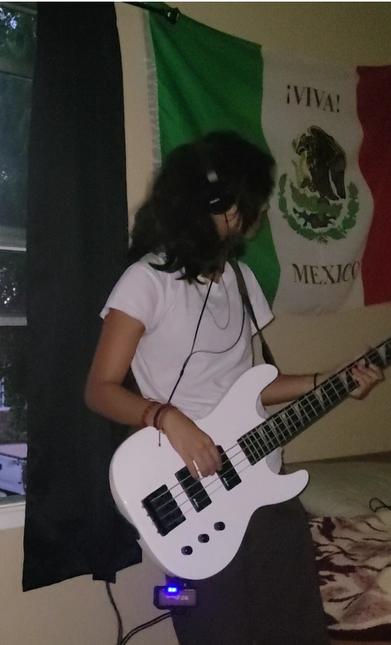
Show Us
S T U D E N T H I G H L I G H T
Your Passions
"My name is Aitza. Im Mexican & in 10th grade. I’ve always loved reading and writing since I was at least 10 years old. Journaling helps me express my feelings and thoughts easier than in words and it has become a hobby I treasure the most."





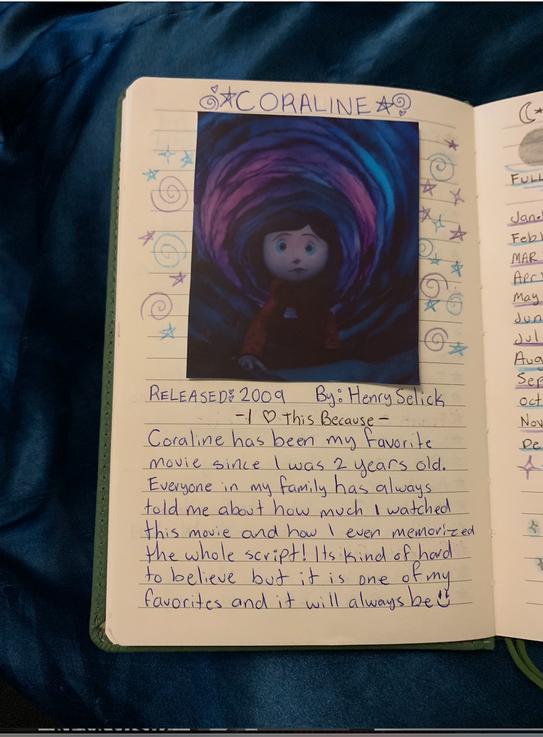
Mechista Magazine, 24
A word from Zam Zam;
Zam Zam Abdul
Zam Zam is a senior at High Tech High, whom writes poetry centering on her religion and life experiences.

Hello my name is Zamzam and I’m a spoken word poet I’ve lived in the states my whole life and for as long as I can remember my heart yearned to experience life in a Muslim country and overall a closeness with Allah swt After years of making dua, I finally achieved my goal

Four months ago this past summer I studied abroad in Morocco to learn and study Arabic and Moroccan culture I fell in love with and was inspired by the delicious food, the way the kasbahs were designed, the colorful souks, the hospitable people, and even the crazy traffic that startled me a couple of times.
Among all of these inspirations, I was mostly inspired by the five daily calls to prayer echoing throughout the medina. I wrote this poem to express my admiration for Al Maghreb. This land gave me hope and grew my connection with Allah swt. Each prayer embodies the key factors of my experience as an east African teen living in North Africa. I hope you all enjoy it.
Mechista Magazine, 25
.
Want more?
See more writing from Zam Zam at @zamzamwrites_
FAJR
Awakened at the break of dawn, the Islamic call to prayer echoed across Rabat and flowed through the palm trees in the lively medina
As I woke up to my cat Simons purring against the smooth tiled floors, I opened the doors and saw the abundant smile of my mother, and it was like no other I shared the first meal of the day a glass of atay and msemen
My cup filled with atay is filled with community, rich culture, and collectivism
I headed to my Arabic class in the taxi alongside a companion I could still taste the sweetness of the atay filled in my glass The cool mint flavor freshened my breath dancing in depth as it lingered inside my soft palate cheeks DHUHR
As I pray on jummah in Mosque Bader, I lay on the soft prayer mat staring at the Islamic art embedded into the ceiling, words cannot truly describe this feeling, I pray to be away from the oppression of Muslims in the western world. I yearn to see what my day in Al Maghreb beholds. The land that inhabits the Mediterranean and Atlantic sea I can guarantee, is not all that the land Al Maghreb comes to be.
ASR
My feet ripened, as I walked through the vibrant and colorful souks I can feel the variety of scents brushing against my nose, I smell the spices and sweet pastry slices The welcoming street cats, the tea glass, the colorful prayer mats, and The dynamic ceramics caught my eye and I wanted to buy designs of all kinds
For wudhu, I felt the water flow below my slippers in the Atlas Mountains rivers The water swayed beside my feet as I walked onto the concrete heat to pray Asr and feel complete
I crave to catch the perfect wave to feel the comfort of the motion of the ocean. I was informed this air is warm, I feel my worries go by as the sunset's warm mellow sky meets the ocean's cool tone. The waves washed over my feet accompanied by the vibrant sun that embraced my skin. The expanding of the beachy scent lingered as I saw the unfolding of the sunset.
ISHA
I’m back home and greeted by my host brother, he opened the door and I still see the abundant smile of my mother as it was like no other Her smile lingers as we share the last meal of the day She filled my cup with atay Al Maghrib is the only place my glass of atay will be full I felt the pool in my eye as I began to cry, I don’t ever want to say goodbye, to Al Maghrib
POEMS MAGHRIB
Mechista Magazine, 26
MIA VILLA









Mechista Magazine, 27
A W O R D
I'm Mia Villa, I'm a junior at High Tech High and I'm a Hispanic musician. Music is my talent, ever since 5th grade I've had a strong passion for music. I play multiple instruments but my first was string bass.
It felt so cool to play an instrument bigger than me. That's where I transferred my skills to electric bass. My music teacher told me that the bass bridges the gap of rhythm and melody, it ties the song. It creates frequency that can be felt. Ever since then I never let go of bass and never let go of music.

My favorite songs to play are "First Love/Late Spring" by Mitski, and "Corazon Espinado" by Santana. "I realized a long time ago that instrumental music speaks a lot more clearly than English, Spanish, Yiddish, Swahili, any other language. Pure melody goes outside time."
-Carlos Santana
F R O M M I A Mechista Magazine, 28
MynameisLeilani Gonzalez,I’mcurrently ajunioratHighTech High.Ireallyenjoy seeingthebeautyinthe littlethingsandviews peopletendtowalk past.Iamalways wantingotherstolook attheworldthewayI seeitsothatwecan enjoyprettyviews togetheratanytime!!
I’vealwayssortofbeen interestedin photography,butI’ve onlyrecentlystartedto takeitupasahobby.
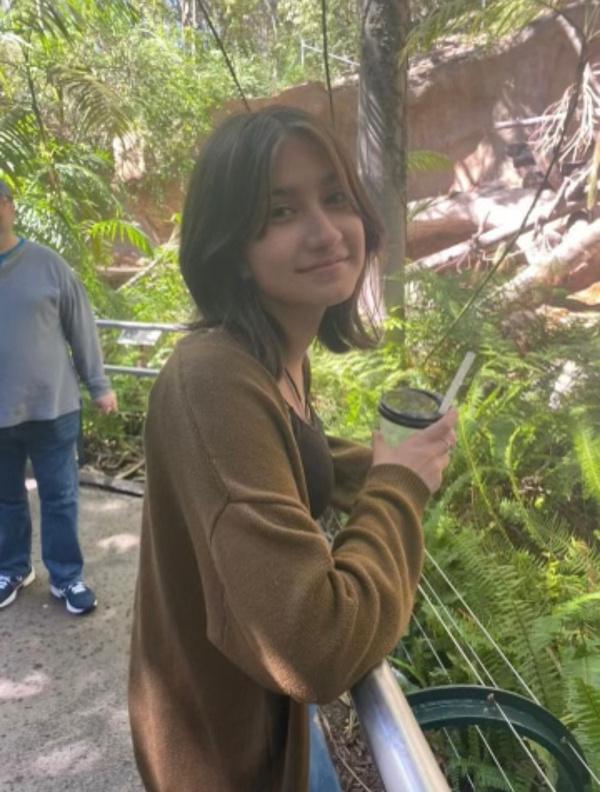
Leilani's Amazing Photography Follows This Page
Mechista Magazine, 29
Leilani Gonzalez

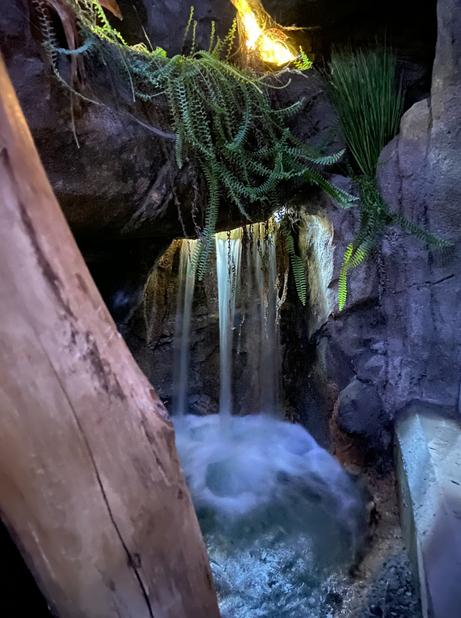


Mechista Magazine, 30
Anywhere Anywhere
ANYTIME WE GOTCHU
TAKE A LOOK AT ALL OF THE PROGRAMS FOR US


Thispartofthemagazinewillfocuson differentsummerprogramsthatprovide opportunitesforprimarilyLatinxandPOC students

Mechista Magazine, 31
CLYLP



CLYLP(Chicano/LatinoYouthLeadershipProgram)

beganin1982withamissionofempoweringyoung Latinxstudents.Theprogramhostsaweeklong leadershipconferencetoanyapplicantentering theirjuniororsenioryear.WhileatCLYLPthemain focusisseeingourpotentialandgrowingas individualsalongsideotherswhohaveasimilar goal.
MostyearstheprogramstartsduringJuneandJuly. Themostknownoftheinstitutesbeingthe statewidewherestudentsfromalloverCalifornia cancometoSacramentoState.

Different Conference Locations
FREE TRANSPORTATION FREE HOUSING Mechista Magazine, 32
3 FREE MEALS A DAY
Mission From NHI Website
"NHI's mission is to create experiences that engage achieving high school and college age youth in community leadership roles that advance our quality of life."
You don't have to be one of the students nominted for this program to participate. There are dozens who work as volunteers, some even being alumni of the NHI programs. However, those who are students in these programs are Latinx students between the grades 9-11 who are nominated through HSI's national outreach. While there are programs for different grades, they all fall within the June to July months. As well, much like most of these programs NHI is an organization with a board and programs nationally.

Mechista Magazine, 33
PROGRAMS OF TRIO

Upward Bound
Upward Bound
Math/Science
Talent Search
Veteran's Upward Bound Student Support Services
Educational Opportunity
Centers
"
Ronald E. McNair PostBaccalaureate Achievement Program Training Grants
...designed to help provide high school students with educational and personal support services that will increase high school graduation and college enrollment and persistent rates."
-sdcity.edu

Mechista Magazine, 34












 MICHAEL CHIN
10TH GRADE CHEMISTRY
JULIA MELCHOR CLASS OF 2026
MICHAEL CHIN
10TH GRADE CHEMISTRY
JULIA MELCHOR CLASS OF 2026
















































